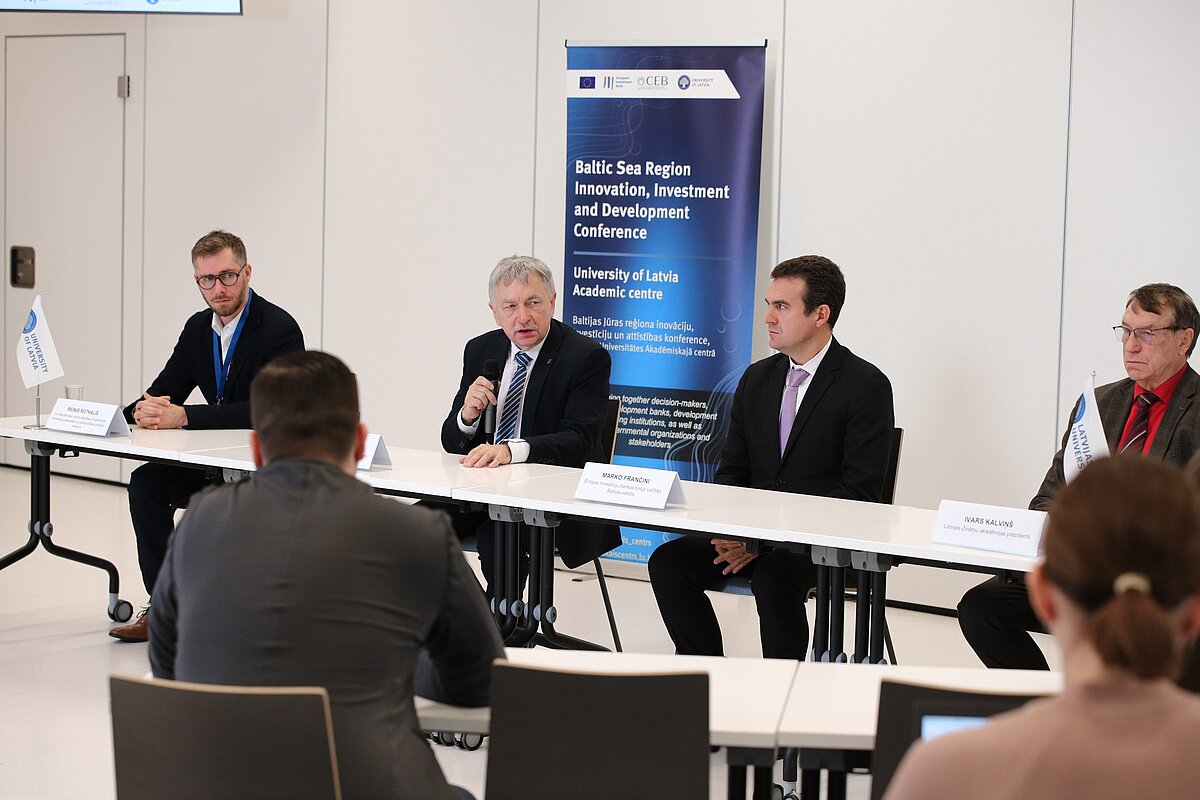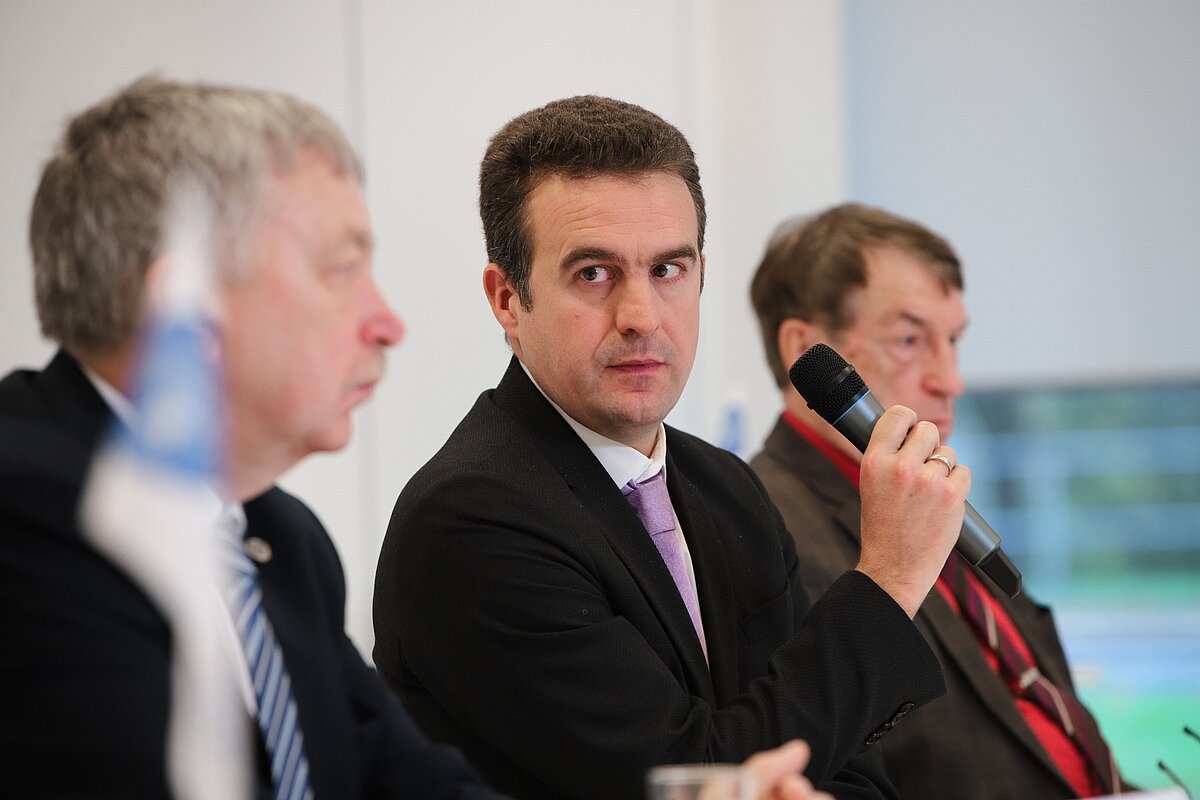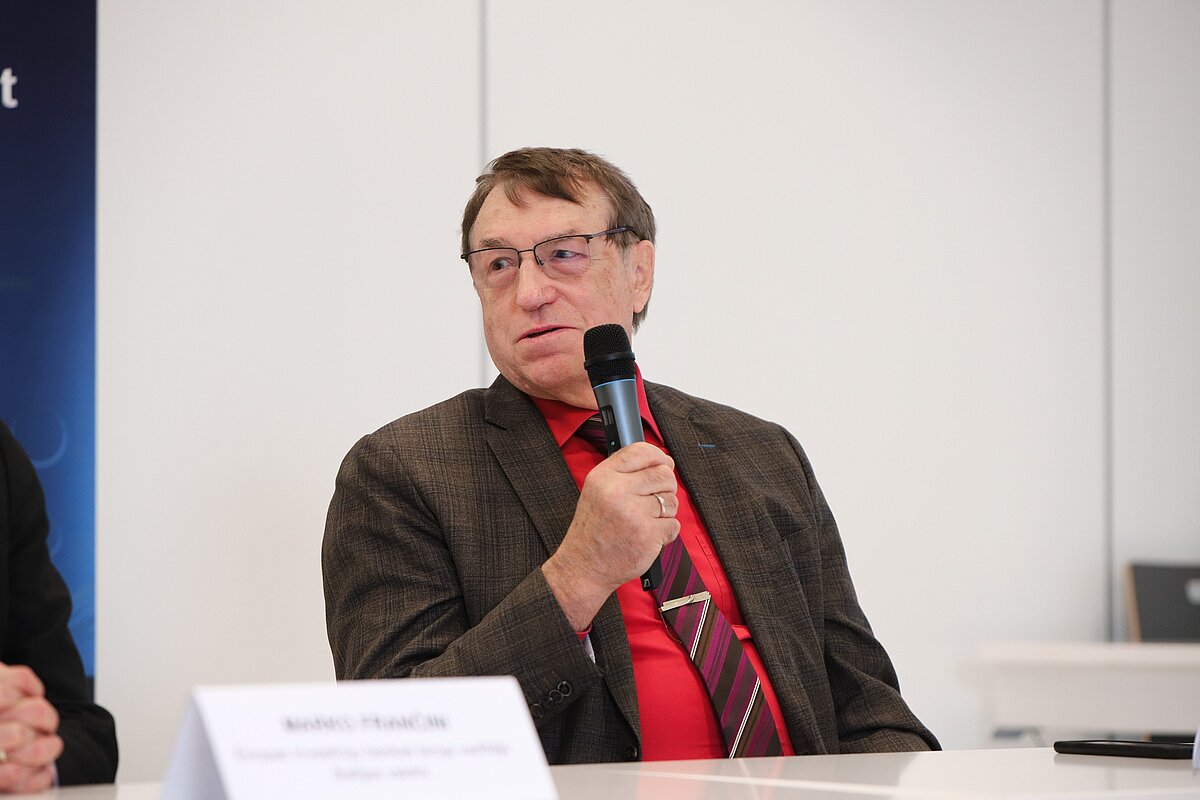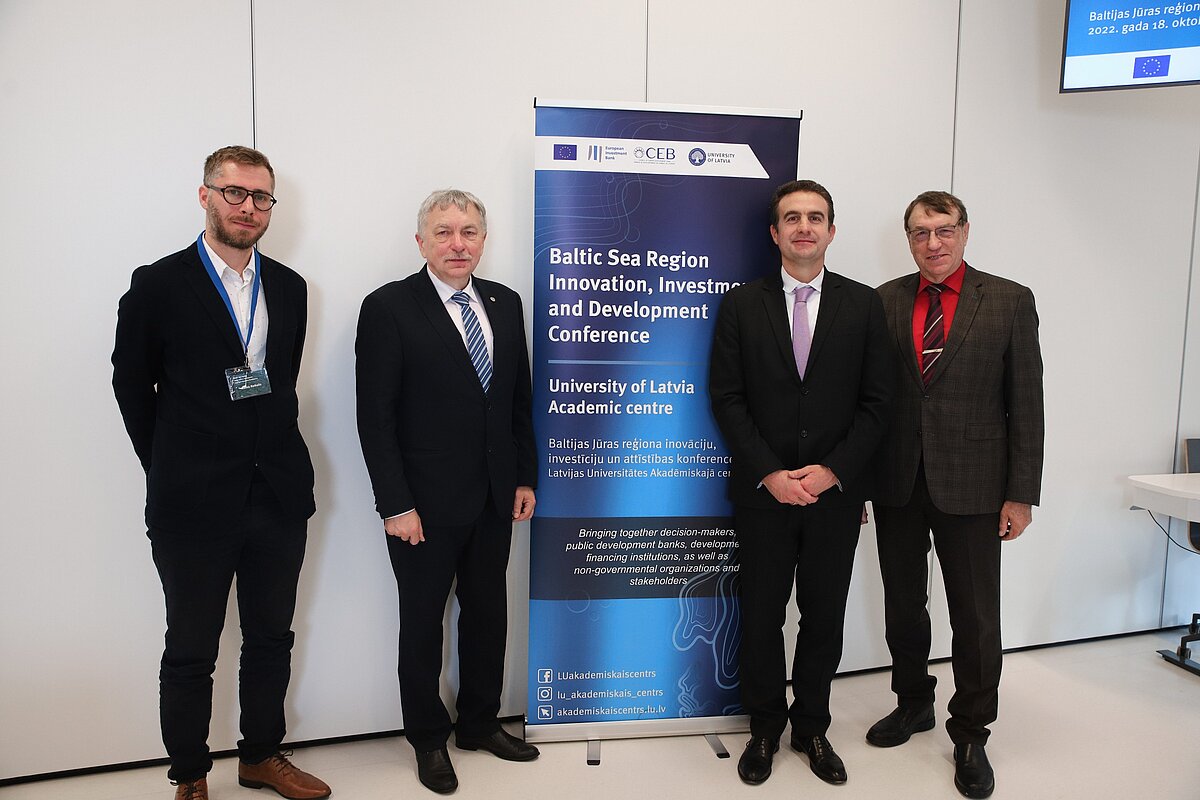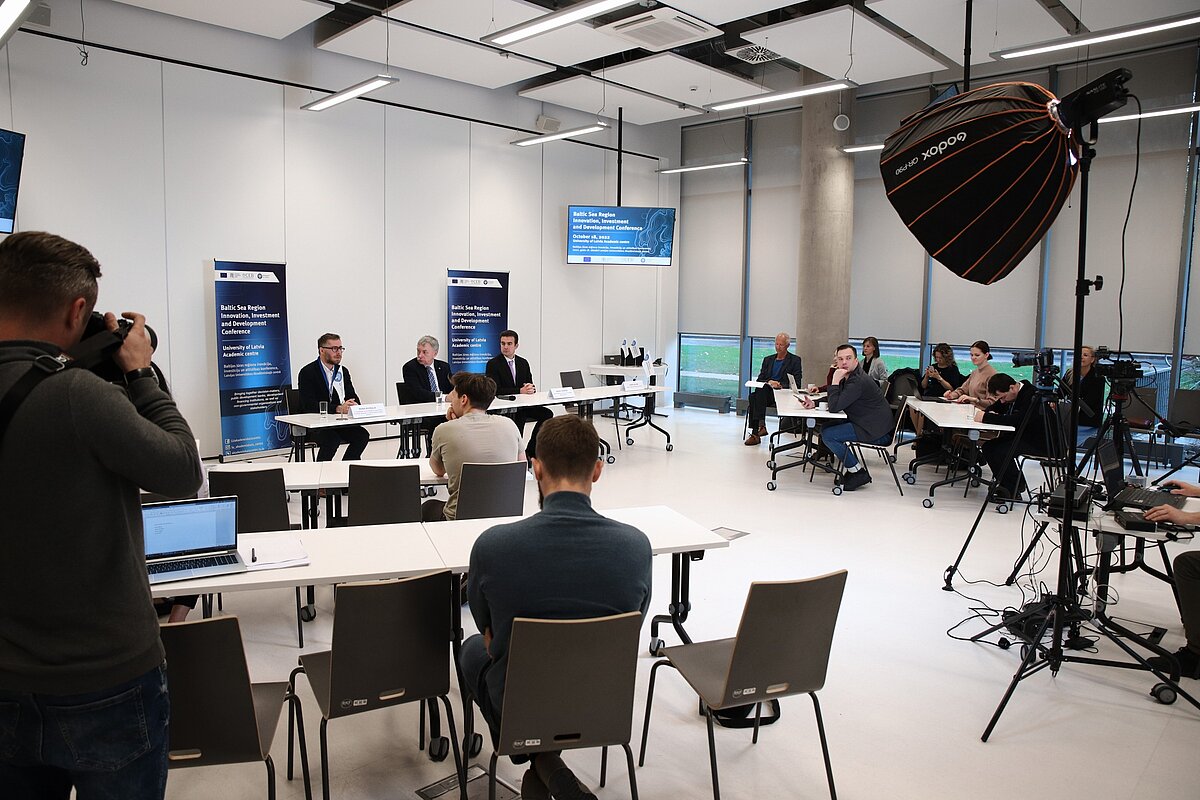
LU rector: cooperation with European financial institutions gives confidence that our development plans are important for the state and society
As one of the first universities in the Baltic States, the University of Latvia (UL) started cooperation with European financial institutions, and this cooperation provides the University not only with financial support, but also with careful expertise of our plans, giving us the confidence that we work responsibly and carefully, and that our plans will meet the state and society's interests, today said the rector of the University of Latvia professor Indriķis Muižnieks at the Baltic Sea Region Innovation, Investment and Development Conference press briefing.
It is known that international financial institutions - the European Investment Bank and the Development Bank of the Council of Europe - have been involved in the implementation of the first stages of the LU Academic center. Evaluating the LU's ability to implement such ambitious infrastructure objects, international players have shown interest in participating in the next stages of development as well, including participating in the conference organized by the UL today.
The head of the European Investment Bank (EIB) office in the Baltic States, Marco Francini, at the briefing emphasized that the EIB was one of the first institutions that started investing in climate change management projects. At the moment, the topic of climate change is relevant all over the world and it is also among the priorities in the European Union. "We are very active in infrastructure projects in the public sector, but recently we are increasingly looking towards the private sector as well. To achieve the goals of climate change, cooperation between the private and public sectors, the involvement of the private sector is necessary, so I hope that there will be fruitful discussions at the conference today, " said M. Franchini.
"Society expects an increase in its well-being from science and education. And this can be achieved by investing in science, education and innovation. In such a small country as Latvia, it is very important for us to combine resources in order to strengthen our economic growth in the maximum possible way," said Ivars Kalviņš, President of the Latvian Academy of Sciences (LAS), Chairman of the Council of the University of Latvia. "LAS and UL actively cooperate to create a base for the development of Latvia, in which not only higher education institutions participate, but also that it is accessible to everyone - the public sector, entrepreneurs, scientists. It would be an infrastructure that would ensure that we could transfer our knowledge into technologies and products.”
As previously reported, the Baltic Sea Region Innovation, Investment and Development Conference is being held today in the University of Latvia Academic Center in Riga, Jelgavas Street 3. Both Europe as a whole and the Baltic Sea region are on the way to creating an ecologically sustainable economy. Strengthening cooperation between the region's largest public and private partners is essential for achieving sustainability goals. The purpose of the conference is to bring together regional decision-makers, public development banks, public and private partners, as well as other interested parties who would share experience in the implementation of sustainable projects.
Decision-makers, national development banks, development financing institutions, as well as non-governmental organizations and stakeholders participate in the conference to discuss the main challenges and share experience in the implementation of large development projects, taking into account the challenge for Europe to become the first climate-neutral continent in the world by 2050.

